Is Spray Paint Bad for Your Skin? (5 Potential Issues)
Spray paint is a versatile and convenient tool used for a variety of purposes, from DIY projects to creating street art. If you are like most people out there, however, you’ve probably had issues with getting spray paint all over your skin, especially on your hands.
So, is spray paint bad for your skin?
Spray paint isn’t completely safe for your skin but being exposed to small amounts infrequently poses a negligible risk and is unlikely to cause any issues. However, some people’s skin might be more sensitive to spray paint which could lead to irritation, itching, and other dermatological issues.
Let’s take a closer look at different kinds of paint and what to expect.
Is spray paint safe for your skin?
Some spray paints contain harmful chemicals and solvents that may cause skin irritation or allergic reactions. Prolonged exposure or direct contact with these chemicals could pose health risks, making it crucial to take preventative measures.
This includes wearing protective gear, such as gloves and clothing that covers exposed skin, as well as understanding how to remove spray paint from your skin if necessary.
By following these precautions, you can prevent negative consequences and ensure a safe and enjoyable experience with spray paint.
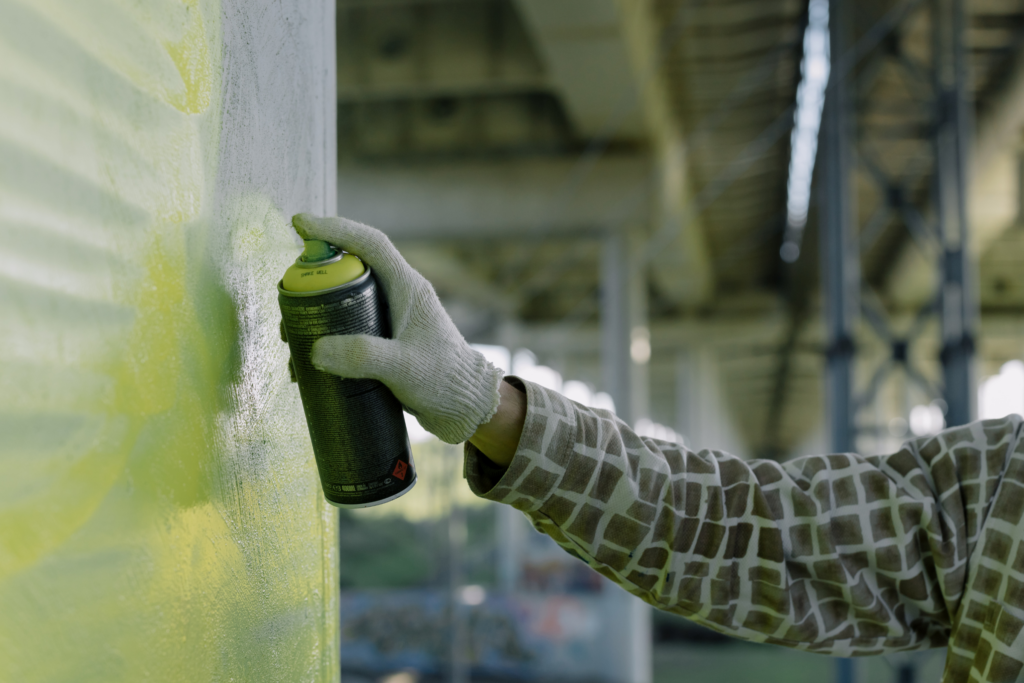
Is Water-Based Paint safe for your skin?
Water-based spray paints contain water as the primary solvent, which makes them generally less harmful than oil-based or solvent-based paints. However, this does not mean that they are entirely safe for your skin.
While water-based paints may cause less irritation, you should still take precautions to avoid direct contact with your skin. Prolonged or repeated exposure may lead to skin irritation, allergic reactions, or absorption of some pigments, which could be harmful to your health.
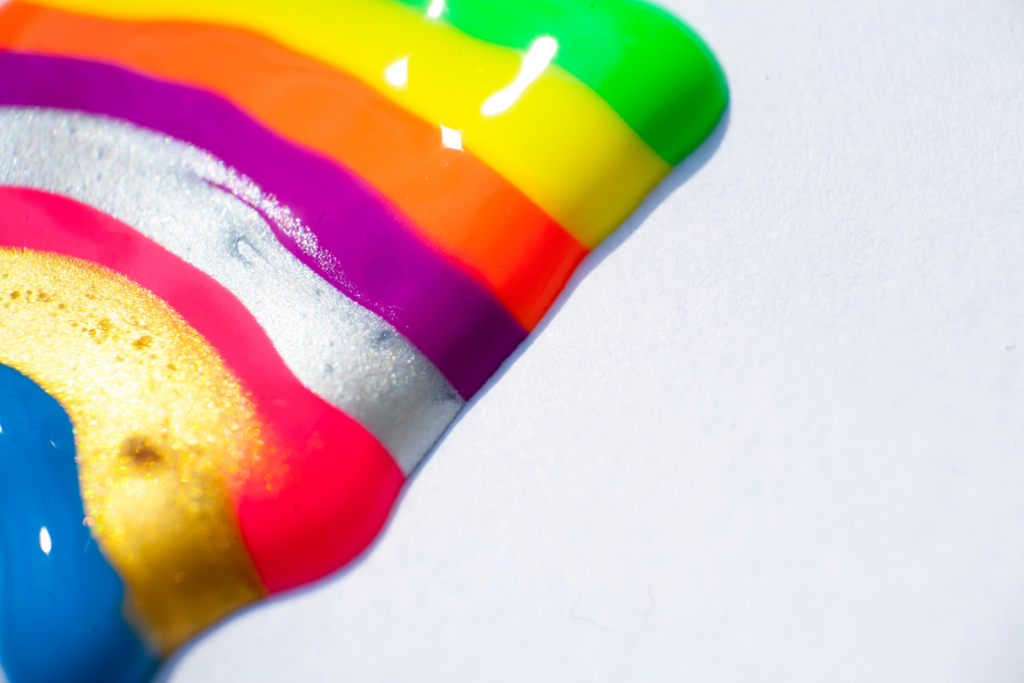
Is Oil-Based Paint safe for your skin?
Oil-based spray paints use oils or alkyd resins as their primary vehicle, which makes them generally more hazardous than water-based paints. When in contact with your skin, oil-based spray paints may cause irritation, rashes, or even chemical burns in some cases.
Oil-based paints often contain pigments and additives that can be absorbed through the skin and potentially lead to harmful effects. For your safety, always wear gloves or other protective gear to avoid contact with your skin when using oil-based spray paints.
Is solvent-based paint safe for your skin?
Solvent-based spray paints are considered the most hazardous of the three types because they contain volatile organic compounds (VOCs) and other toxic chemicals. When these solvents come into contact with your skin, they can cause irritation, inflammation, and even chemical burns.
Furthermore, the pigments and miscellaneous additives in solvent-based paints can be absorbed through the skin, leading to potentially severe health effects.
Potential health risks of spray paint
So, what are the biggest issues with getting spray paint on your skin?
Short-term side effects
When using spray paint, you may experience some short-term side effects, such as irritation, itching, or rashes on your skin. This may be caused by chemicals present in the paint, like volatile organic compounds (VOCs) and formaldehyde.
Additionally, you could experience headaches or even aggravate pre-existing asthma conditions due to the inhalation of these chemicals during the painting process.
Long-term side effects
Prolonged exposure to the harmful chemicals in spray paint could potentially result in more severe side effects like burns or even lead to respiratory issues.
Toxicity of ingredients
Spray paint contains various toxic ingredients that can be harmful to your skin. Some common harmful components include VOCs, formaldehyde, and other chemicals that may cause skin irritation or even allergic reactions.
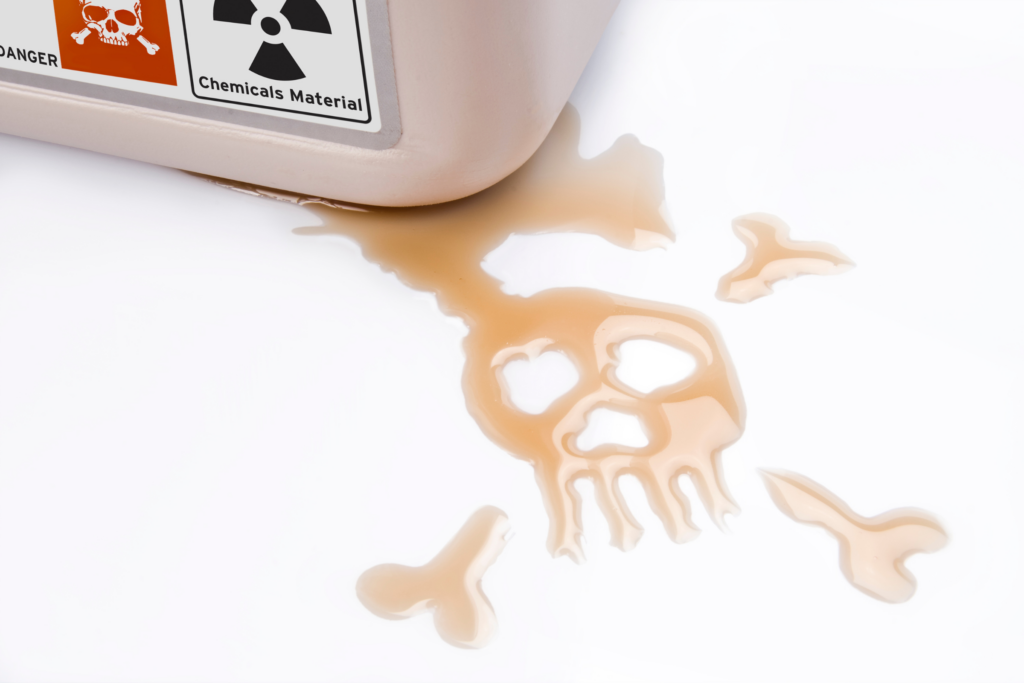
Dermatitis and allergies
Using spray paint without proper protection may cause contact dermatitis – a skin condition that involves inflammation and an itchy rash. In some cases, you may develop an allergic reaction to specific components of the paint.
It is vital to be aware of any pre-existing allergies you may have and take precautionary measures like using gloves and avoiding direct contact with your skin.
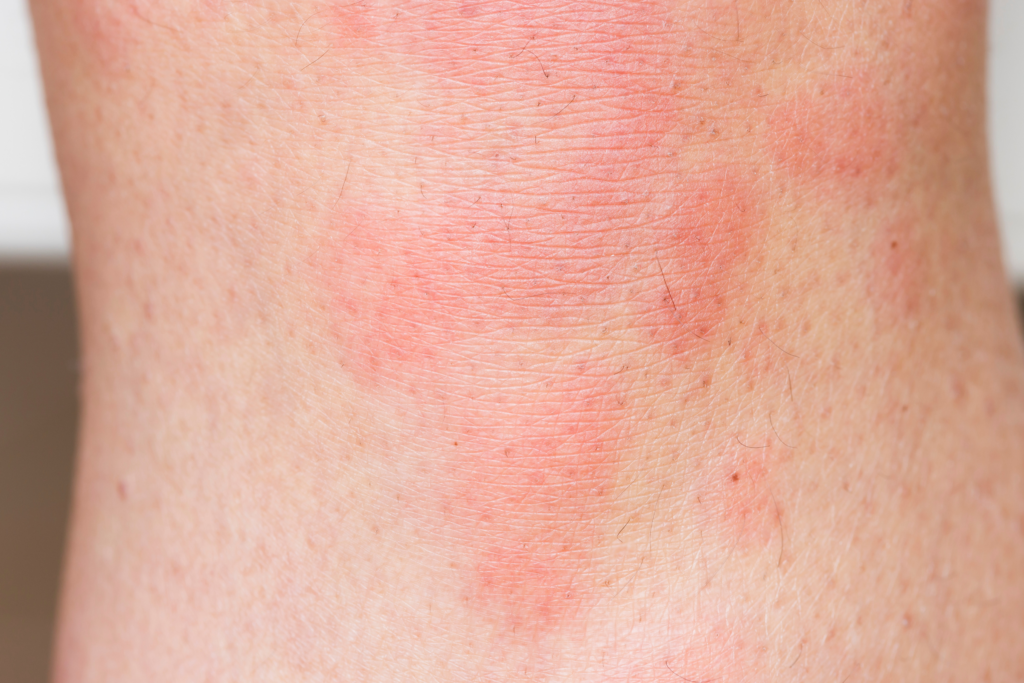
Dryness and discomfort
Frequent use of spray paint might cause dryness and discomfort to the skin, which could result in the desiccation and cracking of the skin. To minimize this risk, it’s necessary to thoroughly wash the affected area with soap and water immediately after contact, and moisturize your skin to prevent any further discomfort.
Removing spray paint from skin
So, how to get spray paint off skin?
Removing spray paint from your skin can be tricky, but it’s essential to do so to prevent long-term damage and irritation to the skin.
Here, we’ll explore three different methods depending on the type of spray paint: water-based, oil-based, and solvent-based. By following these steps, you can safely and effectively remove spray paint from your skin.

Methods for removing water-based paints from the skin
Water-based spray paints are the easiest to remove from your skin. Follow these simple steps to clean the paint off:
- Rinse: Start by rinsing the affected area with lukewarm water to remove as much paint as possible.
- Apply Soap: Gently rub a generous amount of dish soap or hand soap onto the paint-covered skin.
- Scrub: Use a soft cloth or sponge to scrub the area until the paint starts to lift.
- Rinse again: Rinse the area with water to remove the soap and loosened paint.
- Repeat: If necessary, repeat the process until all paint is removed.
Methods for removing oil-based paints from the skin
Oil-based spray paints require a bit more effort to remove. Here’s how to do it:
- Apply Oil: Rub vegetable oil, olive oil, or coconut oil onto the paint-covered skin – these natural oils help break down the paint.
- Massage: Gently massage the oil into the paint until it starts to loosen and lift.
- Wipe: Use a clean cloth or paper towel to wipe away the loosened paint and oil.
- Dish Soap: Use a small amount of dish soap to remove any remaining residue.
- Rinse: Rinse the area with warm water to remove the soap and residue.
Methods for removing solvent-based paints from the skin
Solvent-based paints can be the most challenging to remove, so follow these steps closely:
- Apply Cooking Spray: Spray the paint-covered area with cooking spray (avoid using products containing harsh chemicals or abrasives).
- Baking Soda: Sprinkle baking soda onto the area and gently rub it into the paint using a soft cloth or sponge.
- Remove and Rinse: Carefully remove the paint and baking soda mixture, then rinse the area with lukewarm water.
- Soap and Scrub: Apply dish soap or hand soap to the area, using a soft cloth or sponge to scrub the area gently.
- Rinse: Thoroughly rinse the area with water to remove any soap and paint residue.
In all three cases, it’s essential to remove the paint as soon as possible to reduce the drying time and make the removal process easier. Always be gentle while scrubbing to avoid damaging your skin.
How to avoid getting spray paint on your skin
To ensure your safety while using spray paint and avoiding contact with your skin, it’s essential to follow a few simple guidelines. This section will cover the importance of wearing protective gear and working in a well-ventilated area.
Wearing protective gear
One of the most effective ways to protect your skin from spray paint is by wearing appropriate protective gear. Here are some essential items to consider:
- Gloves: Wearing gloves made of a material like nitrile will not only prevent spray paint from coming into direct contact with your skin but also minimize the risk of chemical irritation and allergic reactions.
- Eye protection: Safety goggles or glasses will shield your eyes from both paint particles and harmful solvents that may be present in the spray paint.
- Mask: A mask or respirator designed for working with chemicals can prevent the inhalation of paint fumes and protect your respiratory system as well.
Combining these safety measures ensures that your skin and other vulnerable body parts will be protected from spray paint exposure.
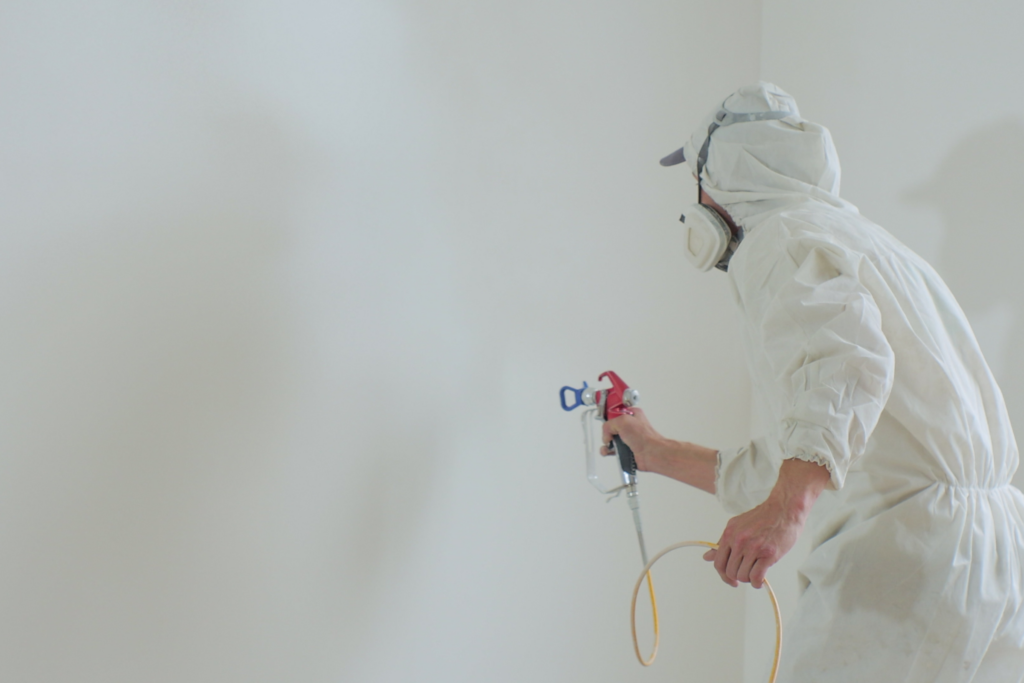
Working in a Well-Ventilated Area
When using spray paint, it’s critical to work in a well-ventilated area. The fumes from the solvents found in spray paint can be hazardous if inhaled, possibly causing dizziness, headaches, or even more severe symptoms.
To maintain proper airflow and reduce the concentration of harmful chemicals in the air, follow these guidelines:
- Choose an open space: Whenever possible, carry out your spray painting projects outdoors or in a spacious, open area where the fumes can disperse more freely.
- Utilize proper ventilation: If you must work indoors, make use of fans, vents, or windows to maintain air circulation, and consider using an air filtration system designed for chemical fumes.
- Take breaks: Regularly step away from the painting area and allow yourself time to breathe fresh air, reducing the risk of inhaling too many fumes in a short period.
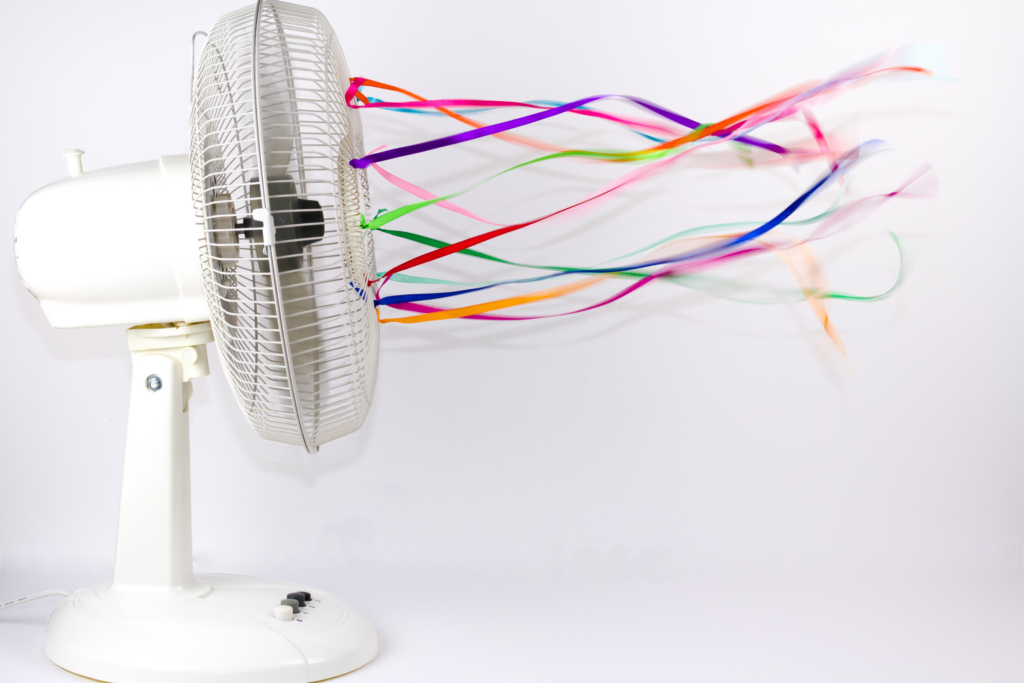
Is spray paint bad for your skin – key takeaways
- Be mindful of potential health risks associated with skin contact and spray paint
- Take precautionary measures, such as wearing protective gear, to minimize skin exposure
- Learn how to effectively remove spray paint from skin if needed
Summary of our discussion on getting spray paint on your skin
Spray paint can have negative effects on your skin and overall health. While it might be tempting to use it as a quick way to finish a project or for creative purposes like body paint, it’s essential to understand the potential risks involved.
Exposure to spray paint, especially for prolonged periods, can lead to various health effects. Skin contact with spray paint might cause irritation, rashes, or even possible chemical burns. It’s crucial that you take precautions like using gloves and protective clothing to minimize skin exposure.
Inhaling spray paint fumes is also hazardous. Breathing in these fumes might lead to headaches, dizziness, and nausea. In more severe cases, it can cause lung cancer and other health issues. To minimize these risks, always work in a well-ventilated area and wear a respiratory mask.
When using spray paint on any project, make sure to let it dry completely before handling it. This will help prevent skin exposure to potentially harmful wet paint. Waiting for the paint to dry not only ensures a smooth finish but also reduces the risk of adverse health effects.
Being aware of these potential health risks associated with spray paint on your skin and overall health is vital for your safety. By taking the proper precautions and following safety guidelines, you can enjoy a successful project while minimizing any risks to yourself and others around you.
Frequently Asked Questions about getting spray paint on your skin
Can spray paint be absorbed through the skin?
Yes, spray paint can be absorbed through the skin.
Although the amount absorbed may vary depending on the type of paint and the length of time it is exposed to the skin, it is crucial to avoid direct contact with spray paint to prevent unwanted health effects.
What are the symptoms of spray paint poisoning?
Symptoms of spray paint poisoning can vary depending on the severity of exposure and the individual’s susceptibility.
Some common symptoms include dizziness, headache, nausea, vomiting, irritation to eyes, nose, and throat, and difficulty breathing. In more severe cases, chemical burns, allergic reactions, and long-term health issues can occur.
How can I remove spray paint from my skin?
To remove spray paint from your skin, gently rub a small amount of olive oil, baby oil, or vegetable oil onto the affected area. After working the oil into the paint, wash the area with soap and warm water.
You may need to repeat the process several times until the paint is entirely removed. Avoid using abrasive materials or harsh chemicals, as these can cause injury or irritation to your skin.
What precautions should I take when using spray paint?
When using spray paint, it is essential to follow safety guidelines to protect your health. These precautions include wearing gloves, a long-sleeved shirt, and eye protection.
Use spray paint in a well-ventilated area or outdoors and avoid inhaling the fumes. Follow the manufacturer’s instructions for proper application and disposal of the spray paint.
Can spray paint cause harm when inhaled?
Yes, inhaling spray paint fumes can be harmful, as the chemicals present in the aerosol spray can negatively impact your respiratory system.
Prolonged exposure can lead to respiratory problems and reduce oxygen levels in the blood, causing dizziness, lightheadedness, and other symptoms. Always ensure proper ventilation when using spray paint to minimize the risk of inhalation.
Are there eco-friendly spray paint alternatives?
Yes, there are eco-friendly spray paint alternatives available on the market.
These alternatives typically use water-based formulas and low levels of volatile organic compounds (VOCs), reducing their impact on the environment and human health. When shopping for eco-friendly spray paint, look for products with low VOC labels and environmentally conscious certifications.
Let Us Know How We’re Doing!
Did this expertly prepared resource answer your question?
Do you have another question about home maintenance, home improvement projects, home appliance repair, or something else?
Get more information, send in questions and keep the discussion going by contacting the I’ll Just Fix It Myself company customer service team at at 1-800-928-1490 or Email us at [email protected]
